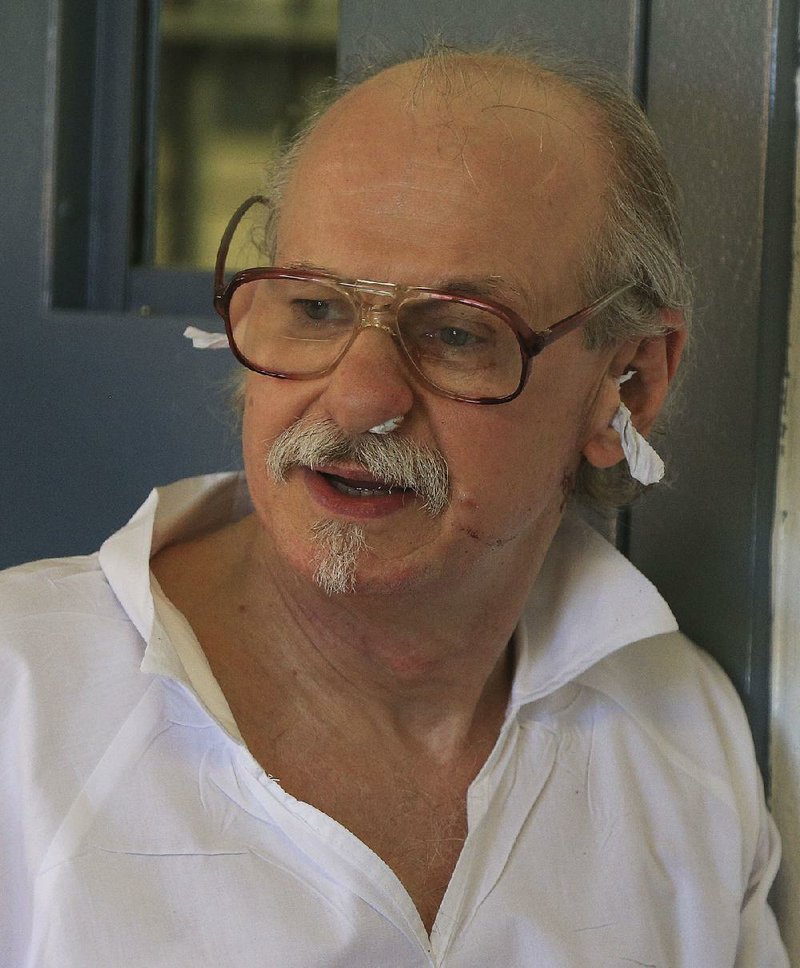After deliberating less than 24 hours, the Arkansas Parole Board reached unanimous agreement Thursday against recommending that the death sentence of convicted murderer Jack Greene be commuted to life in prison.
Still, the final decision on carrying out Greene's execution Nov. 9 is up to Gov. Asa Hutchinson. If it proceeds, it will be the fifth execution in Arkansas this year.
Greene was convicted in 1992 of killing Sidney Burnett, a retired minister living in Johnson County. Twice, Greene's death sentence was overturned by courts, but his third sentencing stuck.
In a related matter, a case before the Arkansas Supreme Court does not directly involve Greene but could affect his execution. Steven Shults, a Little Rock attorney, is suing the Department of Correction to force the release of documents detailing the origins of the state's supply of lethal-injection drugs.
The state Supreme Court on Thursday agreed to expedite its consideration of Shults' lawsuit so that a decision can be reached before Greene's scheduled execution.
Prison officials and the state attorney general argue that Arkansas' law shielding the suppliers is intended to protect the manufacturers of those drugs from public disclosure because the companies do not want to be associated with executions.
A team of federal public defenders that specializes in capital-punishment cases has argued that Greene is mentally ill and unfit to be executed.
On Wednesday, Greene disputed that assessment -- and accused his attorneys of being involved in a conspiracy against him -- as he appeared before the Parole Board at a clemency hearing in the Varner Unit, where he is on death row.
Greene said he wanted his sentence commuted to life if the state abides by an earlier agreement to extradite him to North Carolina, where his conviction for killing his brother has since been overturned. Days before he arrived at Burnett's home in 1991, Greene killed his brother, Tommy, in North Carolina and kidnapped his niece.
Greene said that if Arkansas does not plan to send him to North Carolina, he would prefer to be executed.
The Parole Board also heard from three of Burnett's daughters, who described the anguish of thinking Greene may one day get out of prison and kill again, and they pleaded for his execution to go forward.
The board released its recommendation to the governor early Thursday afternoon, after voting 6-0 that Greene's clemency bid was without merit. Because of a personal matter, board chairman John Felts did not participate in the decision or Wednesday's hearing.
Soon after the board's decision was announced, it was criticized in a statement by Greene's attorneys, who said carrying out Greene's execution would be a "miserable spectacle."
Separately from his clemency bid, Greene's attorneys have filed a lawsuit against the Department of Correction seeking to have Greene declared incompetent, which if they prevail could cancel his execution.
A spokesman for the governor said Thursday that Hutchinson would review Greene's clemency application. The spokesman noted that it was Hutchinson who last month scheduled Greene's November execution date.
Hutchinson, who became governor in 2015, decided on one occasion to grant mercy to a death-row inmate. In August, he commuted Jason McGehee's sentence to life in prison on the recommendation of the Parole Board.
Overall, Hutchinson has set execution dates for 10 men, including Greene and McGehee. Four executions were carried out. Not all of the prisoners for whom he's scheduled executions have sought clemency.
A Section on 10/06/2017
